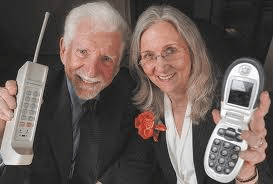This is a follow on from Wednesday’s post Mobile Market Share vs Usage .
I’ve been thinking a lot about why web usage numbers for Android devices (and app purchasing/usage) is so much lower than iOS. Specifically, it seems that the majority of Android users don’t use the “pocket computer” capabilities of their smart phones like iPhone users do. I think the answer is really quite simple: Android phones are “selling” so well because they are the easiest & best phones to get for free.
So who uses Android?
Most of the Android users I know are hardcore geeks and many of them are developers and from the very beginning, I’ve understood why these guys were Android users. You can customize anything and everything on an Android phone. Don’t want the phone to ring when an ex-girlfriend calls? There’s an app for that. Don’t have the latest OS because your carrier sucks? Easy-peasy, just root the phone and update the OS yourself. Wrote your own app and want to give it to your friends? Yay! No stupid Apple hoops to jump through to get it working.
“I Just Want a Phone”
The other set of Android users I know are people that are far from geek. These non-geeks seem to use their phone a lot differently than the hard core geeks I know. They actually use them mainly as phones. Weird, right? And where, 5 years ago, I bought a pocket computer that occasionally rings, this group of people only need a mobile phone to make and receive calls.

NOTE: Not actual Android users
They don’t really care that you can check Facebook on the go. They don’t want to capture, edit and share a movie trailer they made with their kids. The don’t need see LOLcats while waiting in line for the grocery. And they certainly don’t want to play Words with Zombies.
They want to make and receive phone calls. They might want to take pictures. They might want to send and receive text messages (or they feel compelled to by others). Most importantly, they don’t want to spend anything on a mobile phone. And based on usage data, I suspect that is this group of users make up the majority of the Android base.
Free is powerful
I have a hypothesis that many people who would have normally bought a feature phone (or “basic” phone in telco parlance) are now buying smartphones and while I think there might be a lot of reasons for this, I think the biggest reason is that it’s hard to not buy a smartphone. More specifically, it’s hard to get a feature phone for free.
To illustrate this, let’s go on a walk down the virtual aisles of the major US mobile carriers and see what they have available for free (as of May 30, 2013):
- AT&T – 2 basic and 21 smartphones
- Verizon – 6 basic & 6 smartphones
- Sprint – 9 basic and 28 smartphones
- T-Mobile – 2 basic and 4 smartphones
Free feature phone selection is pretty slim at most carriers and many of the “basic” phones look a great deal like smartphones further confusing customers who might be looking for “just a phone.” If a customer comes in looking for a free phone, it’s not hard to imagine a Verizon salesperson pushing last year’s excellent (and free) Samsung Galaxy S III over Apple’s (free) 3 year old iPhone 4. I love my iPhone and if you asked me which free phone to buy, I’d be hard pressed to recommend the iPhone 4.
So basically, a person who wants “just a phone” and doesn’t want to pay anything for it, is now getting a smartphone and that smartphone is undoubtedly an Android device. And that brings us back to where we started – I’ve never thought that all Android users are cheap, but the cheap users are definitely using Android.

